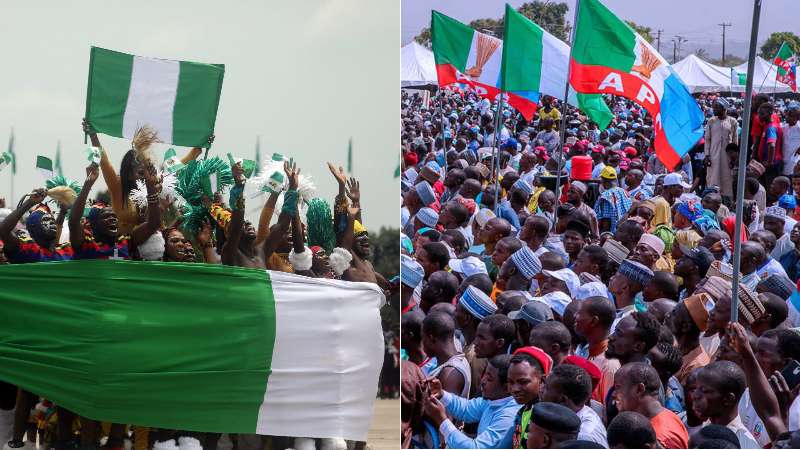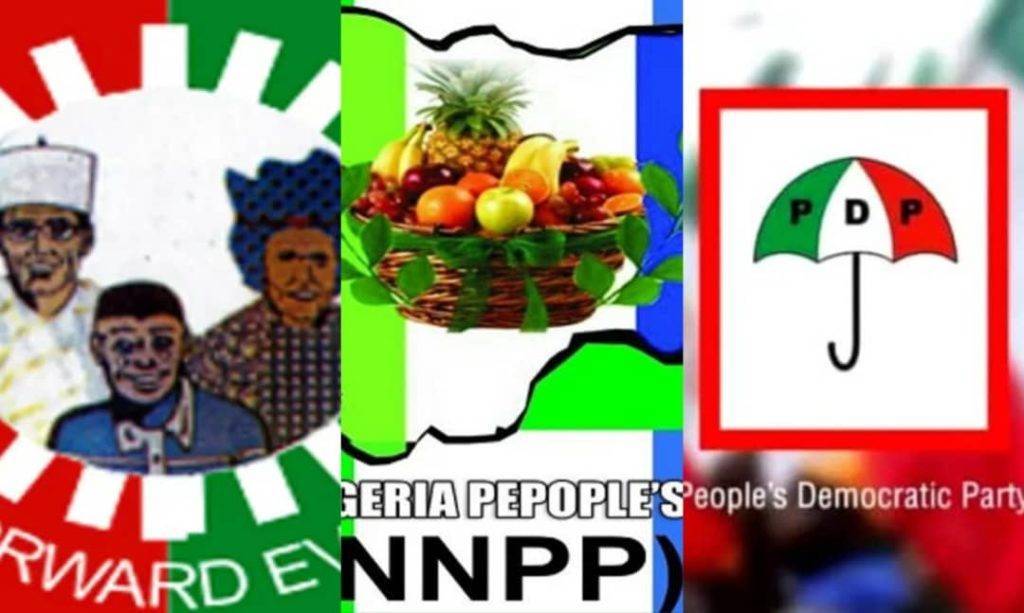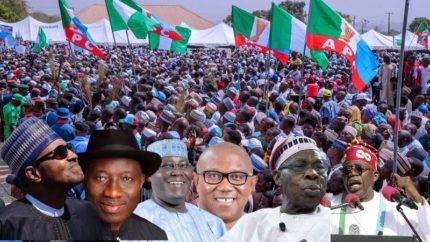A new Political Landscape- Seven major political parties, including the People’s Democratic Party (PDP) and the New Nigeria Peoples Party (NNPP), have joined forces to create the ‘Coalition of Concerned Political Parties (CCPP).’ This alliance, formed in Abuja, aims to present a robust opposition while enhancing Nigeria’s democratic process. The coalition comprises the African Democratic Congress (ADC), Allied Peoples Movement (APM), Social Democratic Party (SDP), Young Progressives Party (YPP), and Zenith Labour Party (ZLP), alongside the PDP and NNPP.
At the National Secretariat of the SDP, leaders of these parties congregated to solidify this collaborative effort. Contrary to misconceptions, the coalition clarified that it isn’t a merger and doesn’t oppose the Inter Party Advisory Council (IPAC). Shehu Gabam, SDP’s chairman, emphasized the collective objective of providing alternative solutions to governmental policies for the benefit of Nigeria reshaping political landscape. Setonji Koshoedo, representing the PDP, reiterated this stance, highlighting the coalition’s commitment to fostering a strong opposition.
Aims and Objectives of the Coalition Political Landscape
The coalition’s primary objective, according to Chief Ralph Nwosu, the ADC’s national chairman, is to fortify Nigeria’s democracy. Nwosu emphasized the need to counteract attempts to suppress a robust opposition within the government. Yusuf Dantalle of the APM noted the presence of other parties in the coalition absent from the meeting, indicating a broader spectrum of political entities aligning themselves with this collective endeavor.
With immediate demands, Shehu Gabam stressed the need for a judiciary that delivers verdicts holding firm against the test of time. He referenced recent Court of Appeal judgments in Zamfara, Nasarawa, Kano, and Plateau states, where coalition candidates lost to ruling party candidates. This call for a robust judicial system underscores the coalition’s commitment to fairness and justice within Nigeria’s political landscape.
Challenges and Analysis of Nigeria’s Political Landscape
Renowned political scientist Professor Kamilu Sani Fage offered insights into the coalition’s dynamics. He highlighted the nuanced semantics between a coalition and a merger, suggesting that the decision to opt for a coalition might be an initial testing of waters by the involved parties. Fage pointed out the timing, deeming the coalition both late and early—late in addressing calls for unity before the 2023 General Election yet early considering the forthcoming 2027 elections.

Moreover, Fage raised concerns about potential challenges regarding the ego of presidential candidates from these parties and the absence of the LP in the coalition. He stressed the LP’s significance due to the support garnered by its presidential candidate, Peter Obi, based on ethnic and religious lines. Fage cautioned that these elements might influence the coalition’s efficacy in the 2023 elections.
The emergence of this coalition reflects a pivotal shift in Nigeria’s political landscape, ushering in a united front among major parties while also raising pertinent concerns about unity, timing, and the interplay of individual party agendas within this collective effort.
Nigeria’s Political Landscape: Decades of One-Party Dominance
Since Nigeria’s inaugural general election in 1959, a quest to establish formidable political alliances and partnerships has persisted. However, these efforts have consistently faltered, resulting in prolonged periods of one-party dominance, largely impeding the emergence of alternative governance. From the formative years of independence until the present day, a pattern of singular party rule has underscored the nation’s political landscape, characterized by brief interludes of multi-party attempts disrupted by military interventions.

The early era of Nigerian politics saw the Northern People’s Congress ( NPC) monopolize governance from 1960 to 1966, overshadowing attempts by the National Council of Nigeria and the Cameroons (NCNC) and Action Group (AG) merger into the United Progressive Grand Alliance (UPGA). Similarly, during the Second Republic, despite mergers among several parties like the Nigerian People’s Party (NPP), Unity Party of Nigeria (UPN), People’s Redemption Party (PRP), and Great Nigeria People’s Party (GNPP), the National Party of Nigeria (NPN) persisted as the dominant force until the military intervened in 1983.
In the Fourth Republic, the People’s Democratic Party (PDP) emerged as the dominant entity, ruling for 14 consecutive years. Despite attempts by other parties to merge, exemplified by the Alliance for Democracy (AD) and All Peoples Party (APP), the PDP maintained its singular control. This historical context begs the question: What are the underlying reasons for Nigeria’s enduring trend of one-party dominance at the national level?
Table of Contents
Discover more from OGM News NG
Subscribe to get the latest posts sent to your email.














